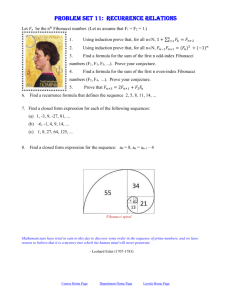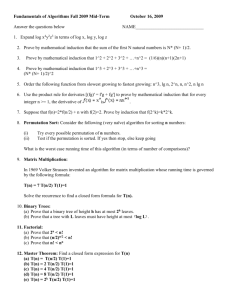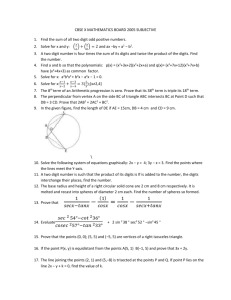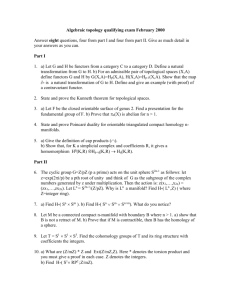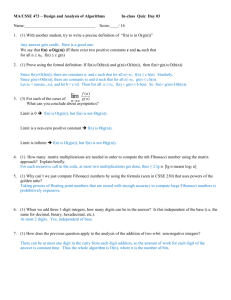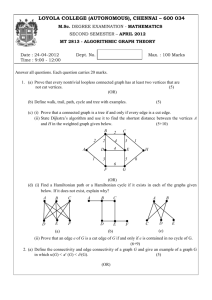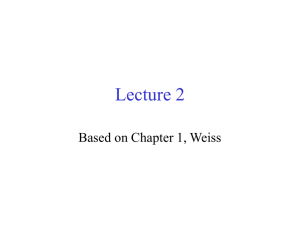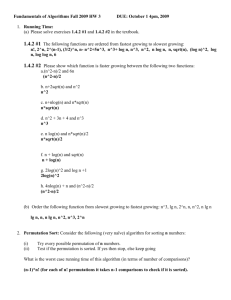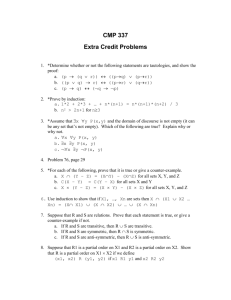HW3
advertisement
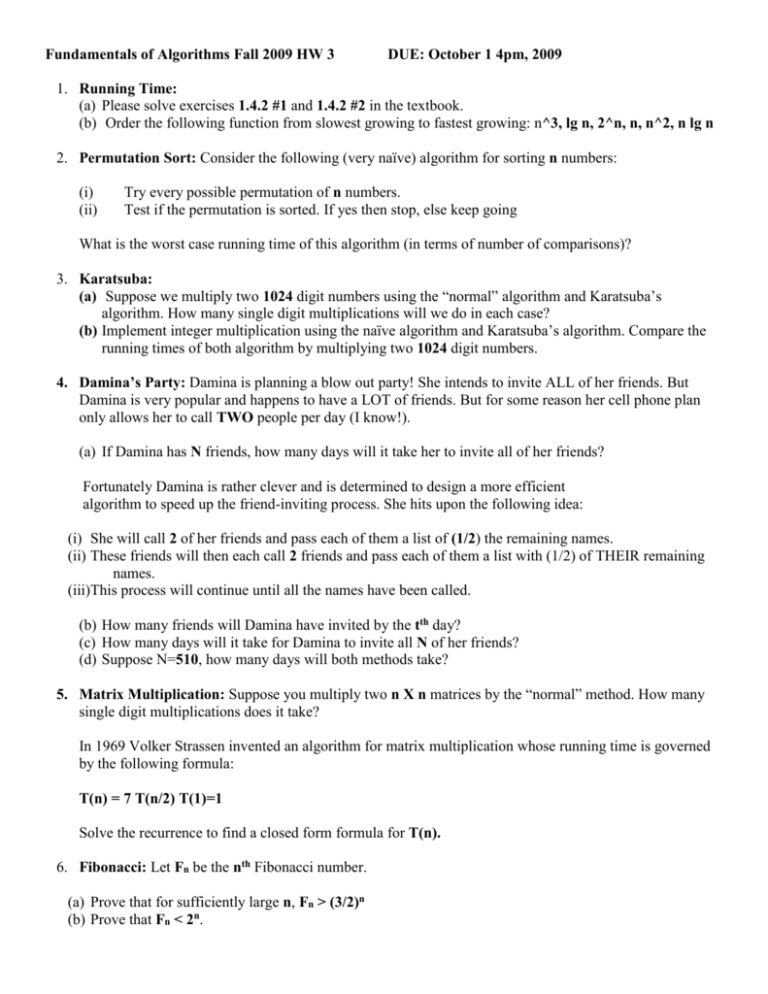
Fundamentals of Algorithms Fall 2009 HW 3 DUE: October 1 4pm, 2009 1. Running Time: (a) Please solve exercises 1.4.2 #1 and 1.4.2 #2 in the textbook. (b) Order the following function from slowest growing to fastest growing: n^3, lg n, 2^n, n, n^2, n lg n 2. Permutation Sort: Consider the following (very naïve) algorithm for sorting n numbers: (i) (ii) Try every possible permutation of n numbers. Test if the permutation is sorted. If yes then stop, else keep going What is the worst case running time of this algorithm (in terms of number of comparisons)? 3. Karatsuba: (a) Suppose we multiply two 1024 digit numbers using the “normal” algorithm and Karatsuba’s algorithm. How many single digit multiplications will we do in each case? (b) Implement integer multiplication using the naïve algorithm and Karatsuba’s algorithm. Compare the running times of both algorithm by multiplying two 1024 digit numbers. 4. Damina’s Party: Damina is planning a blow out party! She intends to invite ALL of her friends. But Damina is very popular and happens to have a LOT of friends. But for some reason her cell phone plan only allows her to call TWO people per day (I know!). (a) If Damina has N friends, how many days will it take her to invite all of her friends? Fortunately Damina is rather clever and is determined to design a more efficient algorithm to speed up the friend-inviting process. She hits upon the following idea: (i) She will call 2 of her friends and pass each of them a list of (1/2) the remaining names. (ii) These friends will then each call 2 friends and pass each of them a list with (1/2) of THEIR remaining names. (iii)This process will continue until all the names have been called. (b) How many friends will Damina have invited by the tth day? (c) How many days will it take for Damina to invite all N of her friends? (d) Suppose N=510, how many days will both methods take? 5. Matrix Multiplication: Suppose you multiply two n X n matrices by the “normal” method. How many single digit multiplications does it take? In 1969 Volker Strassen invented an algorithm for matrix multiplication whose running time is governed by the following formula: T(n) = 7 T(n/2) T(1)=1 Solve the recurrence to find a closed form formula for T(n). 6. Fibonacci: Let Fn be the nth Fibonacci number. (a) Prove that for sufficiently large n, Fn > (3/2)n (b) Prove that Fn < 2n. 7. Binary Trees: (a) Prove that a binary tree of height h has at most 2h leaves. (b) Prove that a tree with L leaves must have height at least ┌log L┐. 8. Factorial: (a) Prove that 2n < n! (b) Prove that (n/2) n/2 < n! (c) Prove that n! < nn 9. Master Theorem: Find a closed from expression for T(n) (a) T(n) = T(n/2) T(1)=1 (b) T(n) = 2 T(n/2) T(1)=1 (c) T(n) = 4 T(n/2) T(1)=1 (d) T(n) = 8 T(n/2) T(1)=1 (e) T(n) = 2k T(n/2) T(1)=1 10. Divide and Conquer: (a) Give a complete analysis of the running time of Merge Sort and prove that it takes O (nlgn) comparisons (you may assume n=2k to simplify the analysis). (b) Give a complete analysis of the running time of Karatsuba’s algorithm and prove that it uses O (nlg3) multiplications of single digits (you may assume n=2k to simplify the analysis). (c) Show that sorting an array of n numbers will take Ω (nlgn) comparisons.
